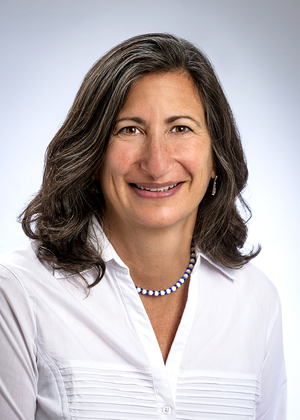Deb Levy, M.Ed., PCC

Deb is a certified life and business coach specializing in action-oriented coaching for individuals, businesses, schools, non-profit organizations and corporations. For 25 years, she has been helping clients prioritize their goals and develop road maps to success. Her genuine enthusiasm and insightful prodding helps clients break through perceived limitations to stretch themselves. Using research-based positive-psychology strategies, Deb creates the support and structure her clients need to stay on task.
Whether you're an executive charged with the success of your organization or an mid-career professional ready to make a change, Deb can help you use your strengths to your advantage and leverage your assets to accelerate your progress. Deb makes the process of change an enjoyable, and can help you achieve your boldest goals.
In addition to her coaching work, Deb leads workshops on using positive psychology to improve performance and well-being for a variety of schools , businesses and non-profits. Deb was an award-winning Teaching Fellow at Harvard University, where she taught Positive Psychology alongside Dr. Tal Ben-Shahar and Shawn Achor when it was the largest class at Harvard. Deb taught Positive Psychology class at the Tufts Experimental College and received rave reviews from her students. Each semester she leads Positive Psychology Academic Coaching workshops for the Harvard Extension School, as she is one of their most popular presenters.
Deb received her BA in psychology from Amherst College and an M.Ed. in Counseling from the University of Massachusetts Amherst. Deb is an ICF Certified Professional Coach (PCC) and received her coaching training from Mentor Coach. Deb lives in Arlington, MA and enjoys tennis, cooking, biking and performing stand-up comedy.
Whether you're an executive charged with the success of your organization or an mid-career professional ready to make a change, Deb can help you use your strengths to your advantage and leverage your assets to accelerate your progress. Deb makes the process of change an enjoyable, and can help you achieve your boldest goals.
In addition to her coaching work, Deb leads workshops on using positive psychology to improve performance and well-being for a variety of schools , businesses and non-profits. Deb was an award-winning Teaching Fellow at Harvard University, where she taught Positive Psychology alongside Dr. Tal Ben-Shahar and Shawn Achor when it was the largest class at Harvard. Deb taught Positive Psychology class at the Tufts Experimental College and received rave reviews from her students. Each semester she leads Positive Psychology Academic Coaching workshops for the Harvard Extension School, as she is one of their most popular presenters.
Deb received her BA in psychology from Amherst College and an M.Ed. in Counseling from the University of Massachusetts Amherst. Deb is an ICF Certified Professional Coach (PCC) and received her coaching training from Mentor Coach. Deb lives in Arlington, MA and enjoys tennis, cooking, biking and performing stand-up comedy.
About Positive Psychology
In 2006 I had the privilege of being a teaching fellow in Tal Ben-Shahar's Positive Psychology class at Harvard University. Alongside Shawn Achor, (as well as other talented teaching fellows), we lead over 856 undergraduate students through a transformational learning experience. Dubbed the "Happy Class", it created some bewilderment and suspicion on campus: What made this class so popular? Were students given A's for smiling and thinking positive thoughts? Flash forward to winter of 2014: my Positive Psychology class at Tufts University fills up one minute after registration opened. It doesn't take a scientist to tell us that, clearly, there's something "up".
The person responsible for launching the field of positive psychology in 1998 was Martin Seligman. He brought together researchers to study and find answers to a fundamental question: What contributes to happiness and success as we develop as human beings? Students and others are drawn to the material in Positive Psych because it encapsulates research-based strategies to improve mood, well-being and performance. (It's by no means the standard mood enhancer!) By studying positive emotions, strengths, goal-setting and relationships, people learn the skills necessary to succeed-- in their personal, academic, and professional lives.
The person responsible for launching the field of positive psychology in 1998 was Martin Seligman. He brought together researchers to study and find answers to a fundamental question: What contributes to happiness and success as we develop as human beings? Students and others are drawn to the material in Positive Psych because it encapsulates research-based strategies to improve mood, well-being and performance. (It's by no means the standard mood enhancer!) By studying positive emotions, strengths, goal-setting and relationships, people learn the skills necessary to succeed-- in their personal, academic, and professional lives.